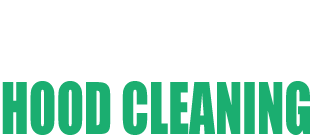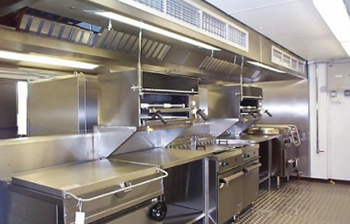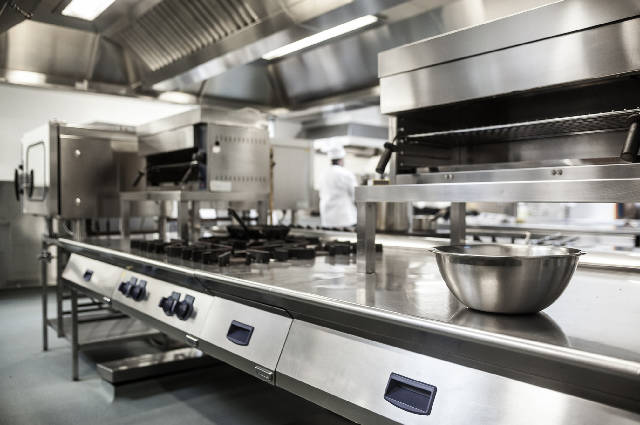Essential Hood Cleaning for Restaurant Emergency Preparedness Plan
Maintaining Safety with Hood Cleaning: The Unsung Hero of Restaurant Emergency Preparedness
Emergency preparedness in the restaurant business is not just about having fire extinguishers and clearly marked exits. It’s about going above and beyond to prevent emergencies from happening in the first place. One often overlooked, yet crucial, component of a comprehensive emergency preparedness plan is hood cleaning. Ensuring proper maintenance and cleaning of your restaurant’s hoods could be the difference between business as usual and a catastrophic fire.
Why Hood Cleaning is Essential
Restaurants are bustling places where culinary magic happens, but they are also hotspots for potential hazards. Among these hazards, grease build-up in the kitchen’s exhaust system tops the list. That’s where restaurant hood cleaning comes into play. These hoods are designed to filter out airborne grease, smoke, and odors that result from cooking. Over time, if left unchecked, layers of grease accumulate, which can become a serious fire risk.
- Fire Hazard: Grease is highly flammable. When it accumulates in the ventilation system, it can easily ignite, turning your exhaust system into a potential firestorm.
- Health Code Compliance: A dirty hood system can result in health code violations, fines, or even temporary closures. Clean hoods ensure that your restaurant remains in good standing with health and safety authorities.
- Efficiency: Regular commercial kitchen hood cleaning ensures that your ventilation system works efficiently, maintaining good air quality and a comfortable environment for both staff and patrons.
Integrating Hood Cleaning into Your Emergency Preparedness Plan
Having an emergency preparedness plan is not just about reacting to crises but also about proactive measures to prevent them. Incorporating routine exhaust hood cleaning into your plan can substantially lower the risk of kitchen fires and other emergencies. Here’s how you can make sure your restaurant’s hoods are always in top-notch condition:
Regular Cleaning Schedule
Create a schedule for regular cleaning of your hoods. Depending on your kitchen’s volume of use, the frequency might vary. High-volume kitchens should consider weekly cleanings, while smaller operations might be fine with a monthly routine. Always document these cleanings to ensure consistency and accountability.
Professional Cleaning Services
While daily wipe-downs and degreasing are essential, professional cleanings are a must. Engage services that specialize in San Jose Hood Cleaning to ensure a thorough job. These professionals have the tools and expertise to clean areas that everyday staff may overlook.
Staff Training
Your staff should be knowledgeable about the importance of hood cleaning. Regularly train them on how to spot signs of excessive grease build-up. Empowering them to take immediate action can be a crucial preventive measure.
The Impact of Hood Cleaning on Overall Safety
A clean kitchen hood not only keeps the risk of fire at bay but also enhances the overall safety environment of your restaurant. Here’s how comprehensive hood cleaning contributes to a safer dining experience:
Improved Air Quality
Effective restaurant hood cleaning removes harmful pollutants and improves air quality, making it safer and more pleasant for both kitchen staff and diners. Good air quality also reduces symptoms such as headaches, fatigue, and respiratory issues.
Compliance and Peace of Mind
Clean hoods mean compliance with local health and safety regulations. Emergency preparedness is not just a legal requirement but a peace-of-mind factor for restaurant owners and managers. Knowing that you’ve done everything to mitigate risks allows you to focus on delivering exceptional dining experiences.
Lower Insurance Premiums
Many insurance companies recognize the importance of regular hood cleaning. By showing proof of routine maintenance, you could benefit from lower premiums. This isn’t just cost-effective but also reinforces the importance of a robust emergency preparedness plan.
Choosing the Right Hood Cleaning Service
Not all hood cleaning services are created equal. To ensure that your kitchen remains a safe sanctuary, it’s vital to select the right partner. Here are some considerations when choosing a San Jose Hood Cleaning service:
- Experience and Reputation: Choose companies with proven track records. Look for testimonials and reviews to gauge their reliability.
- Certification and Training: Ensure that the technicians are certified and well-trained. They should comply with NFPA 96 (National Fire Protection Association standards for ventilation control and fire protection of commercial cooking operations).
- Comprehensive Services: Opt for a service provider that offers thorough cleaning, including ducts, fans, and other critical components of the ventilation system.
- Emergency Services: Emergencies are unpredictable. A service that also offers emergency cleaning will be a valuable asset to your emergency preparedness plan.
Conclusion
The restaurant industry is fraught with risks, but many of these can be mitigated through proactive measures like regular hood cleaning. By incorporating this critical task into your emergency preparedness plan, you are not only safeguarding your establishment against potential fires but also ensuring a healthier and more efficient working environment. Prioritize regular professional cleanings and keep your kitchen running smoothly and safely.
For more information on how to keep your commercial kitchen safe and compliant, consider partnering with a trusted service provider like San Jose Hood Cleaning.







